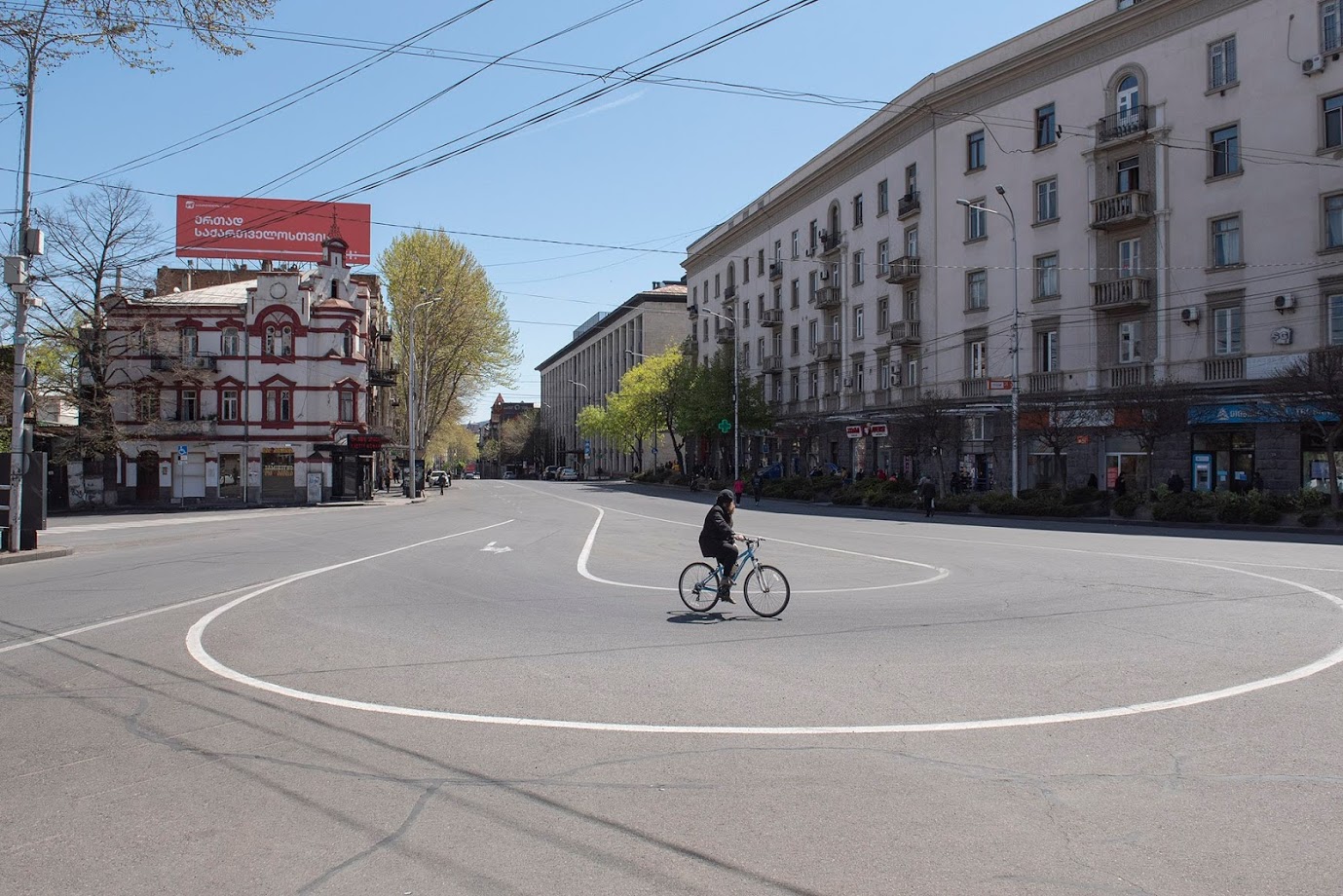Georgia records highest daily rise in COVID-19 as fears grow of second emergency state

Georgia has recorded the highest daily rise in the number of confirmed cases of COVID-19 leading one of the country’s top health officials to warn of a possible second state of emergency.
On Tuesday, 45 people tested positive for the virus, topping the previous high of 43 from 2 May.
Marina Ezugbaia, Medical Director of Tbilisi’s Hospital of Infectious Diseases warned that the virus may have ‘started spreading intensively’.
‘Our moderate, controlled, rise [in the number of cases] is now in question’, Ezugbaia admitted on Tuesday.
As daily case numbers continue to rise, uncertainty has grown over Georgia’s image as a success story in fighting the coronavirus. Until now, the authorities, who have closely cooperated with the country’s top medics, have been lauded internationally for acting fast to enact effective anti-coronavirus curbs.
Tengiz Tsertsvadze, Director of Tbilisi’s Infectious Diseases Hospital, warned last week that anti-coronavirus measures previously put in place could be reinstated if the numbers continue to rise.
‘There is a real risk, a serious risk, that we will be forced to reinstate the state of emergency’, he said.
However, Georgian Deputy Health Minister Tamar Gabunia told news site Ambebi.ge on Tuesday that based on the current situation, there was ‘no grounds’ to reintroduce a state of emergency in Georgia.

Georgia lifted a nationwide two-months-long state of emergency and curfew on 23 May, with only specific settlements placed under lockdown since.
Election uncertainty
The spike in numbers comes as the election campaign gets underway ahead of 31 October’s parliamentary vote. The authorities have insisted there is no plan to postpone the election.
The Central Election Commission (CEC) has not yet announced specific arrangements for election day. However, the commission told OC Media in August that they were not considering thermally screening voters at polling stations.
The CEC has also yet to come up with plans to ensure those in quarantine or who are being treated in hospital have the right to vote.
The government’s coronavirus taskforce indicated this week that they planned to keep asymptomatic patients and those with mild symptoms in quarantine zones, instead of hospitalising everyone who tests positive.
Recent opinion polling has shown that the public has overwhelmingly supported the government’s response to the crisis so far.
However, a study by CRRC Georgia found that while the public was satisfied with the government’s actions, a majority favoured reopening the economy over taking measures to curb the spread of the virus.
[Read more: Datablog | Lockdown vs re-opening the economy in Georgia]
The same study found that average household income almost halved in the initial months of the pandemic and that around half of those who were employed lost a job.
The Georgian Dream-run government have also faced growing discontent over signs of corruption in the financing of hotels used as quarantine zones, air travel remaining largely closed, and quarantine being mandated for Georgian citizens returning home.
‘Adjara is a red zone now’
Georgia’s Black Sea coastal region of Adjara has been at the epicentre of the latest surge in coronavirus cases. The region has seen a steady rise in the daily number of new confirmed cases compared to previous months.
On 8 September, the authorities confirmed 21 new cases in Adjara out of a total 179 recorded in the region since 15 March.
‘There is a far more serious situation in Adjara’, Marina Ezugbaia told journalists on 8 September. ‘The incidence rate is 42.4 there, which means that Adjara, specifically, is a red zone now.’
Unlike settlements in the Svaneti, Marneuli and Bolnisi municipalities, major population centres in Adjara including the cities of Batumi and Kobuleti have so far avoided being quarantined.
While the government has vowed to reopen schools and universities on 15 September, on 7 September, Prime Minister Giorgi Gakharia announced that in Kobuleti and Batumi, lessons would be conducted remotely until October.
On 8 September, the Public Service Hall in Batumi temporarily closed after an employee tested positive for the virus. Earlier, the local Public TV Adjara suspended their broadcast for two days citing a similar reason.
The government has indicated that they plan to focus on wider testings and stricter regulations for closed-spaced events, primarily large weddings and funerals, in order to stabilise the situation.









